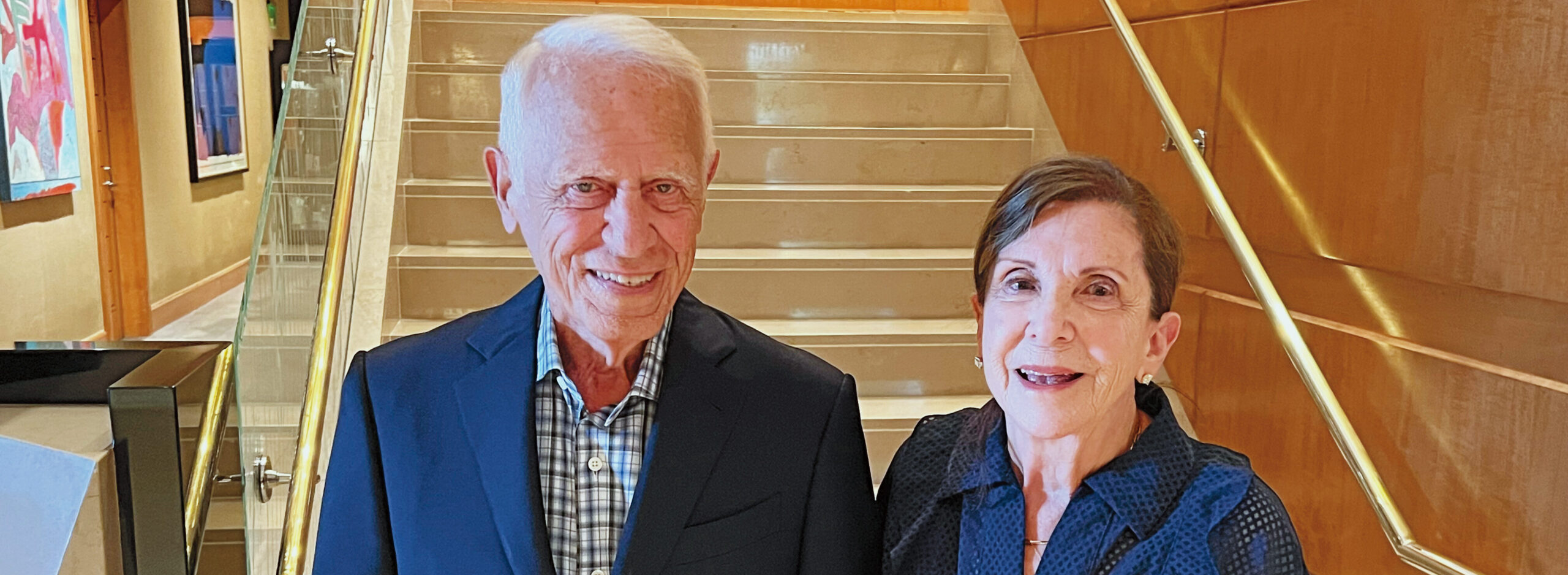
Slifkas propel MS research and care with $1.5 million gift
Richard Slifka has championed multiple sclerosis (MS) research for four decades. Through his experience as a longtime board member of the National MS Society, Slifka has delighted in watching physician-scientists rise up in the field and become preeminent leaders over time.
One renowned investigator Slifka has followed closely is Howard L. Weiner, MD, Brigham neurologist and the Kroc Professor of Neurology. With admiration for Weiner’s achievements and promising future discoveries for MS, Slifka, along with his wife, Rosalyn, committed $1.5 million to help Weiner and his colleagues deepen progress for patients and families through research in the Brigham’s Ann Romney Center for Neurologic Diseases. Their gift establishes the Sonya Slifka Multiple Sclerosis Innovation Fund, named for Slifka’s mother.
I’m especially impressed by [Dr. Weiner’s] concerted efforts to improve quality of life for patients with the most complex cases of MS.
“Howard is one of the best in this field,” says Slifka. “I’m especially impressed by his concerted efforts to improve quality of life for patients with the most complex cases of MS. More breakthroughs are now within reach, making this a critical time to invest in his continued leadership.”
When Weiner founded the Multiple Sclerosis Center at the Brigham in 2000, it was the first integrated MS center to combine clinical evaluation, MRI imaging, and immune monitoring in patient care.
Since 2014, Weiner has guided the Ann Romney Center for Neurologic Diseases as co-director, leading a multidisciplinary team to push the boundaries of MS research and explore how MS intersects with Alzheimer’s disease and other related neurologic diseases. With the Slifkas’ support, Weiner will continue to spearhead innovative research focused on understanding and treating progressive MS and leveraging the immune system and gut microbiome to develop next-generation therapies.
“We’re so fortunate to benefit from Richard’s passion and knowledge, and his dedication to longitudinal population studies and novel research directions, which demand high investments of time and resources and make a tremendous impact,” says Weiner. “Thank you to Richard and Rosalyn for standing with us as partners in this crucial work to advance care for patients and move closer to the day we have a cure.”